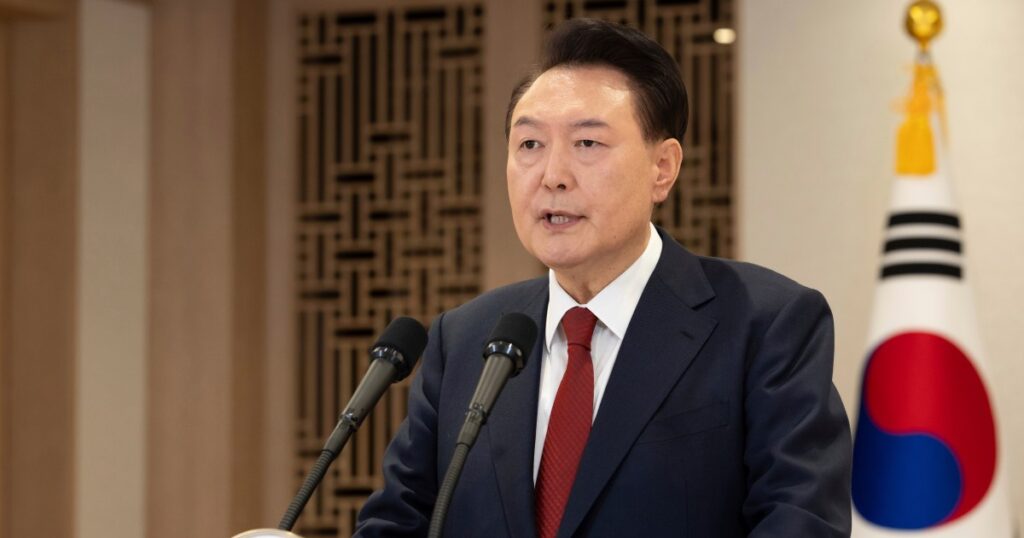The Joint Investigation Department has requested an arrest warrant for the suspended president due to the short-term imposition of martial law.
South Korean authorities have requested an arrest warrant for President Yun Seok-Yeol, who was suspended for briefly imposing martial law.
South Korea’s Joint Investigation Headquarters announced on Monday that it had called for Yoon’s arrest on charges of sedition and abuse of power.
A joint investigation team made up of officials from the CIO, the police and the Ministry of Defence, announced that it had sought a warrant for the impeached leader’s arrest after he ignored three summonses to appear for questioning. did.
In response to the request for Yoon’s detention, the first in South Korean history, the court is scheduled to decide whether to issue a warrant.
As a sitting president, Yun enjoys immunity from prosecution for most crimes, but he is not protected from legal repercussions in the case of sedition or treason.
Yoon’s lawyer, Yoon Gap-geun, told the state-run Yonhap news agency that the CIO was acting beyond its authority and that he would take “formal action” against it.
Mr. Yoon’s brief imposition of martial law on Dec. 3 stunned South Korea and plunged the East Asian country into its biggest political crisis in decades.
Yun has been suspended from office since December 14, when the National Assembly voted 204-85 to impeach him.
The conservative leader, who served as the country’s highest-ranking prosecutor before entering politics, faces criminal charges of sedition, a crime punishable by life in prison or the death penalty.
Following Yoon’s proclamation, heavily armed troops stormed the National Assembly and clashed with lawmakers in dramatic scenes that recalled memories of South Korea’s past military dictatorships.
Prosecutors allege that Yoon instructed senior defense officials to authorize soldiers to fire if necessary to enter Congress.
Martial law lasted for about six hours, and Yun unanimously agreed to lift it.
Yun defended his brief declaration of martial law as a lawful and necessary act, citing threats from “anti-national forces” and obstruction by the opposition Democratic Party (Democratic Progressive Party).
The country’s leadership crisis intensified on Friday when the opposition-dominated parliament passed a resolution to also impeach acting President Han Deok-soo, handing presidential powers to Vice Prime Minister and Finance Minister Choi Sang-mok.
The Democratic Progressive Party and several opposition parties have rejected Mr. Han’s immediate appointment of three judges to fill vacancies on the Constitutional Court, which is deliberating whether to support Mr. Yoon’s impeachment. voted in favor of impeaching.
The court will have up to six months to issue a decision, after which Yun will either be removed from office or reinstated as president.
In an initial preparatory hearing on Friday, the court rejected a request by Mr. Yoon’s lawyers to postpone proceedings to allow the South Korean leader to better prepare his case.



